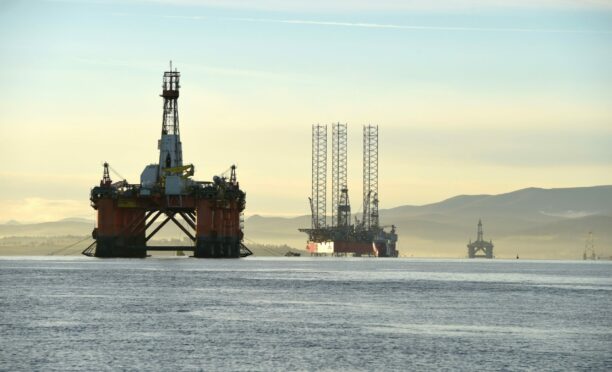Green freeports are like buses – you wait a long time and then two come at once.
Prime Minister Rishi Sunak is in Scotland for the first time since taking the top job to confirm the establishment of a green free port on the Cromarty Firth and Inverness and another in Edinburgh.
The status is seen as a win for the two areas as it is expected to attract investment from companies involved in the energy industry, especially offshore wind, which means a boost for job creation.
Aberdeen and Peterhead has expressed its “bitter disappointment” that its bid to land a green freeport has not succeeded.
But not all consider the establishment of green freeports as a panacea.
Critics believe the incentives such as reduced regulation offered to firms means they create low-paying jobs with little protection for workers.
Concerns have also been raised over lack of transparency over land-ownership and that designated zones simply move economic activity from one part of the country to another, resulting in a nil-sum benefit to the economy as a whole and potentially improving one area while depriving another.
How do they work?
Freeports or zones are geographic areas that offer special conditions such as reduced regulation on planning and employment as well as cheaper customs duties such as tariffs and VAT, and lower taxes.
In Scotland the green freeports will be established in zoned areas extending around 28 miles (45km) which includes rail depots, sea and airports.
In addition to the model established in England, “green” freeports come with requirements to pay living wages and support clean energy targets.
Why are are good?
Speaking in Inverness ahead of the green freeport announcement, Rishi Sunak highlighted that the special economic zones are “used extensively all around the world”.
“What you see in countries whether it is in Asia, the Middle East or America, freeports are used to as a way to attract jobs and investment to places.
“They have worked really successfully to create hundreds of thousands of jobs around the world and bring billions of dollars and pounds of investment.
“I think we can do the same thing here in the UK.
“And the two areas that are going to benefit today I know are very excited to be freeports.
“As we have seen elsewhere in England so far where we have already rolled out the program, we are seeing companies locate in in these freeports particularly in industries of the future which Scotland is so brilliant at.”
Opportunity Cromarty Firth, the consortium leading the establishment of the Inverness and Cromarty Firth Green Freeport, believe it will serve to “level up” the region, reverse years of population decline, and put Scotland firmly on the map by creating tens of thousands of quality jobs, delivering renewable energy and net-zero ambitions.
Why might they be bad?
Critics of tax and regulation-free zones are many.
Green MSP Maggie Chapman has described freeports as a “fad” and described them as the “chlorinated chicken of industrial policy“.
As we expect news on Freeports today, here is an article I wrote back in 2020 about why I think they’ll be bad for our communities, our environment and our economy. https://t.co/l8WHYH4k3c
— Maggie Chapman MSP (@MaggieChapman) January 12, 2023
Meanwhile, concerns have been raised over a lack of transparency over land ownership and “crony contracts” at the freeport zone in Teesside, for example.
The harshest critics claim they cab become a haven for money launderers and tax evaders, highlighted in a report in 2019 which called for their abolition.
Where else they are
The first eight freeports announced in 2021 are now up and running in at East Midlands Airport, Felixstowe and Harwich, the Humber region, the Liverpool City Region, Plymouth, Solent, Thames and Teesside.
How long has it been?
The announcement on green freeports comes three months after Scottish Secretary Alister Jack revealed the bids had been chosen, but kept the winners under wraps.
Political turmoil including two changes of prime minister added to delays to the project, which was first floated nearly two years ago.
